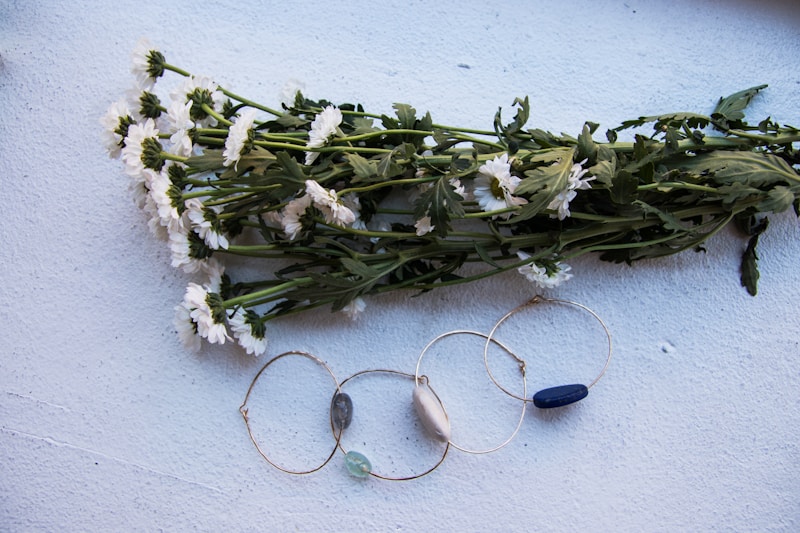Implementing Eco-Friendly Practices in Bridal Retail: A Sustainable Approach to Weddings
Implementing Eco-Friendly Practices in Bridal Retail: A Sustainable Approach to Weddings
In recent years, the global trend towards sustainability has affected all industries, and bridal retail is no exception. The wedding industry, known for its significant environmental impact, is starting to embrace eco-friendly practices. From sourcing materials to promoting sustainable choices, bridal retailers have an opportunity to lead the charge towards eco-conscious celebrations. In this article, we will explore various strategies for implementing eco-friendly practices within bridal retail, the benefits of going green, and some commonly asked questions related to this important trend.
The Importance of Eco-Friendly Practices in Bridal Retail
As consumers become more environmentally conscious, their purchasing decisions reflect this shift. Couples are increasingly seeking ways to celebrate their love without compromising the planet. Implementing eco-friendly practices not only demonstrates social responsibility but also meets the demands of an evolving market. The benefits of such practices extend beyond environmental impacts; they can enhance brand loyalty, attract a broader customer base, and ultimately lead to increased sales.
Benefits of Eco-Friendly Practices
| Benefit | Description |
| Increased Customer Loyalty | Eco-conscious consumers are more likely to return to businesses that prioritize sustainability. |
| Reduced Environmental Impact | Implementing eco-friendly practices can significantly lower the carbon footprint of the wedding industry. |
| Enhanced Brand Image | A commitment to sustainability can improve brand perception and attract media attention. |
| Cost Savings | Some eco-friendly practices, such as digital marketing and reducing waste, can lead to significant savings in operational costs. |
Strategies for Going Green in Bridal Retail
To effectively implement eco-friendly practices, bridal retailers can focus on several key areas:
1. Sustainable Sourcing
One of the most significant areas where bridal retailers can make an impact is in sourcing materials. Choose vendors who use sustainable practices, such as organic fabrics, recycled materials, or those that follow fair trade principles. By collaborating with eco-conscious brands, bridal retailers can offer products that align with their values and appeal to environmentally aware customers. 
2. Eco-Friendly Packaging
Traditional packaging often consists of plastic and non-recyclable materials. By switching to biodegradable or reusable packaging solutions, bridal retailers can reduce waste and promote a greener message. Consider using recycled paper, compostable materials, or even fabric wraps for presentations. Customers will appreciate the effort, and it reinforces the eco-friendly brand image.
3. Energy Efficiency
Utilizing renewable energy sources, such as solar or wind, can significantly decrease a store's carbon footprint. Retailers can also invest in energy-efficient lighting and heating systems, which can save costs in the long run while being environmental stewards.
4. Digital Marketing and Social Media
Shifting to digital marketing reduces the need for physical resources like print ads and flyers, minimizing waste. Use social media platforms to promote sustainable practices, share stories of eco-friendly brides and grooms, and highlight the importance of making sustainable choices in wedding planning. Engaging content can inform and inspire couples about eco-friendly options.
5. Offer Rental Options
Encourage couples to consider renting rather than buying wedding attire and accessories. This practice not only reduces waste but also allows for creative choices without the environmental impact of manufacturing new products. Highlight rental options and sustainable designs in your offerings to appeal to eco-conscious customers.
Common Challenges in Implementing Eco-Friendly Practices
While the transition to eco-friendly practices is beneficial, bridal retailers often face challenges such as:
- Cost Concerns: Initially, eco-friendly options may appear more expensive. However, the long-term savings and increased customer loyalty often outweigh these costs.
- Consumer Awareness: Not all consumers are aware of eco-friendly options. Retailers need to invest time in educating their customers about the benefits of choosing sustainable products.
- Supplier Limitations: A lack of suppliers offering sustainable options can pose challenges. Retailers should network within the eco-friendly community to source responsibly.
Frequently Asked Questions
What are some examples of eco-friendly materials for wedding dresses?
There are many sustainable materials available, including organic cotton, hemp, linen, and bamboo. Additionally, some designers are using innovative fabrics made from recycled plastics, which can reduce waste and promote environmental stewardship.
How can I encourage my customers to choose eco-friendly options?
Educate your customers about the environmental impact of their choices. Share information about sustainable practices through your website, social media, and in-store displays. Consider offering incentives for customers who choose eco-friendly options, such as discounts on rentals or a percentage of profits donated to environmental causes.
Are there any certifications for eco-friendly wedding products?
Yes! Look for products that have certifications such as GOTS (Global Organic Textile Standard) for organic textiles, Fair Trade certification for ethical labor practices, and certifications indicating eco-friendly production methods.
Conclusion and Recommendations
Implementing eco-friendly practices in bridal retail is not just a trend but a necessary evolution in the wedding industry. By adopting sustainable sourcing, energy-efficient solutions, and engaging digital marketing, retailers can position themselves as leaders in this green movement. It’s important to remember that transitioning to eco-friendly practices can come with challenges, but the rewards far outweigh the difficulties. As consumers continue to prioritize sustainability in their purchasing decisions, bridal retailers that embrace these practices will not only attract more customers but also contribute positively to the environment.
In conclusion, making eco-friendly choices in bridal retail is possible and beneficial. Start by assessing current practices, set measurable goals, and take gradual steps towards sustainability. The journey may be challenging, but it’s worth it to help create a greener planet.
